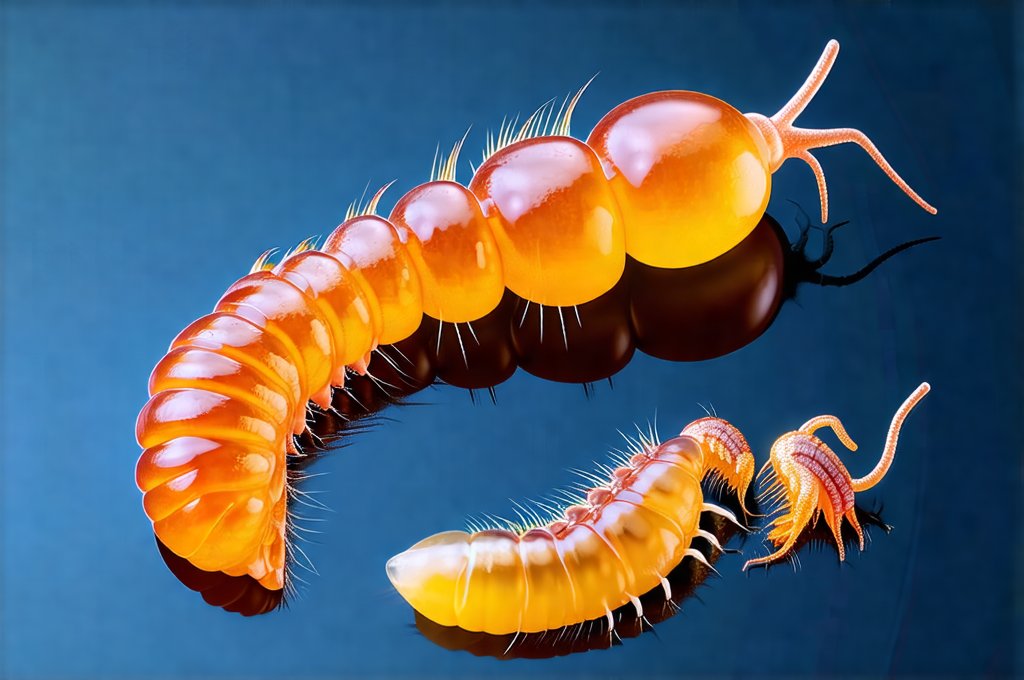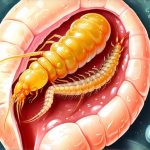The intricate world within our digestive system is far more complex than most people realize. It’s not simply about what we eat; it’s about how effectively our bodies absorb the nutrients from that food. Often, when discussing digestive issues, we focus on bacteria – the microbiome – and its influence. However, less frequently acknowledged are parasitic infections residing within the gut, and their potential to disrupt this delicate balance, leading to nutrient deficiencies and uncomfortable symptoms like bloating. While often associated with developing countries or exotic travels, parasitic infections are surprisingly common even in industrialized nations, and can significantly impact health without causing obvious immediate illness. Many individuals live for years unaware they harbor these organisms, experiencing subtle but persistent health problems that remain undiagnosed.
The gut is a dynamic ecosystem where beneficial microbes, the host (us), and sometimes unwelcome guests like parasites coexist. A healthy gut thrives on balance. Parasites, by their very nature as living organisms within another organism, disrupt this balance. They compete for nutrients, directly damage the intestinal lining, and trigger immune responses that can further compromise nutrient absorption and contribute to inflammation. Understanding how these infections occur, what types are most common, and the specific mechanisms through which they cause problems is crucial for proactive health management. It’s important to note that diagnosis and treatment should always be undertaken with qualified healthcare professionals; self-diagnosis or treatment can be dangerous. This exploration aims to illuminate the potential connection between gut parasites, nutrient deficiencies, and bloating, offering insights into recognizing symptoms and seeking appropriate support.
The Mechanisms Linking Parasites to Nutrient Deficiencies
Parasitic infections rarely present as a single, dramatic illness. More often, they manifest as a constellation of subtle symptoms that can mimic other conditions, making diagnosis challenging. The way parasites cause nutrient deficiencies is multifaceted, going beyond simply “stealing” nutrients from the host. – Direct Nutrient Consumption: Many parasites directly consume essential vitamins and minerals for their own growth and reproduction. For example, Giardia lamblia consumes sugars and proteins, while hookworms feed on blood, leading to iron deficiency anemia. – Intestinal Damage: Parasites can physically damage the intestinal lining, reducing the surface area available for nutrient absorption. This damage also leads to inflammation, which further impairs absorption. – Impaired Digestion & Absorption: Some parasites interfere with the normal digestive processes, hindering the breakdown of food and subsequent absorption of nutrients. They might inhibit pancreatic enzyme production or disrupt bile acid metabolism. – Immune System Activation: The immune response triggered by a parasitic infection, while intended to eliminate the parasite, can also contribute to inflammation and malabsorption. Chronic inflammation exhausts nutrient reserves as the body attempts repair.
The specific deficiencies that develop depend on the type of parasite, its location within the gut, and the individual’s overall nutritional status. Common deficiencies associated with parasitic infections include Vitamin A, Vitamin B12, folate, iron, zinc, and essential fatty acids. The impact isn’t just about lacking a vitamin or mineral; it’s about the cascading effects that deficiency has on bodily functions. Iron deficiency can lead to fatigue and impaired cognitive function. Vitamin B12 deficiency impacts nerve health and energy levels. A lack of fat-soluble vitamins (A, D, E, K) affects immune function, bone health, and overall cellular processes. Chronic parasitic infections are often linked to long-term nutritional imbalances, even if the individual is consuming a seemingly adequate diet. If you suspect a deficiency, exploring food sensitivities lead to these issues may be helpful.
Furthermore, the gut microbiome plays a vital role in nutrient absorption. Parasitic infections disrupt the delicate balance of this microbial ecosystem, reducing the diversity and abundance of beneficial bacteria. This disruption further exacerbates malabsorption issues, creating a vicious cycle. A compromised microbiome also weakens the immune system, making the individual more susceptible to other infections and health problems. Understanding gut imbalance cause food cravings can help understand the connection between your gut and diet.
Identifying Common Gut Parasites
Pinpointing which parasite is responsible for symptoms can be complex, requiring specific diagnostic testing performed by a healthcare professional. However, understanding some common culprits can help in recognizing potential issues. – Giardia lamblia: This is one of the most prevalent parasitic infections worldwide, often contracted through contaminated water or food. Symptoms include diarrhea, bloating, gas, abdominal cramps, and nausea. Chronic giardiasis can lead to malabsorption syndromes and nutrient deficiencies. – Cryptosporidium parvum: Another common waterborne parasite causing diarrheal illness, particularly problematic for individuals with weakened immune systems. – Blastocystis hominis: Once considered a non-pathogenic organism, Blastocystis is now recognized as potentially contributing to digestive symptoms in some individuals, including bloating, abdominal pain, and diarrhea. Its role in nutrient deficiency is still being researched but its impact on gut health is significant. – Dientamoeba fragilis: This parasite often causes chronic diarrhea, abdominal pain, fatigue, and weight loss. It can be difficult to detect with standard stool tests. – Hookworms (Ancylostoma duodenale & Necator americanus): These parasites attach to the intestinal wall and feed on blood, leading to iron deficiency anemia. They are prevalent in areas with poor sanitation.
It’s crucial to remember that many people can be asymptomatic carriers of these parasites, meaning they harbor the infection without experiencing noticeable symptoms. This makes early detection even more challenging. However, individuals who have traveled to regions with high parasite prevalence, drink untreated water, or have compromised immune systems are at higher risk and should consider testing if they experience persistent digestive issues. The impact on mental health is also important – gut inflammation cause mental fog can be a symptom of gut imbalance.
The Role of Parasites in Bloating & Gas Production
Bloating is a common symptom associated with many digestive disorders, but parasitic infections can be a significant contributing factor. While bloating isn’t always directly caused by the parasite itself, it often arises as a consequence of the changes happening within the gut. – Altered Gut Motility: Parasites and the inflammation they cause can disrupt normal gut motility – the rhythmic contractions that move food through the digestive tract. This disruption leads to slower digestion, increased fermentation of carbohydrates in the colon, and ultimately, excessive gas production. – Dysbiosis & Gas-Producing Bacteria: As mentioned earlier, parasites alter the gut microbiome, often leading to an overgrowth of gas-producing bacteria. These bacteria ferment undigested food particles, releasing gases like hydrogen, methane, and carbon dioxide, causing bloating and discomfort. – Inflammation & Intestinal Permeability: Parasitic infections trigger inflammation in the intestinal lining, increasing its permeability (“leaky gut”). This allows undigested food particles and toxins to enter the bloodstream, further exacerbating inflammation and potentially contributing to bloating.
The type of parasite can influence the specific gases produced. Some parasites promote the growth of bacteria that produce hydrogen sulfide, a gas associated with particularly foul-smelling flatulence and more severe bloating. The combination of altered gut motility, dysbiosis, and inflammation creates a perfect storm for digestive discomfort, making bloating a prominent symptom in many parasitic infections. Bloating should not be dismissed as simply “stress” or dietary intolerance; it warrants investigation to rule out underlying causes like parasitic infection. If you experience consistent issues with bloating, supplements cause gut side effects may also be a factor.
Diagnostic Approaches & Supportive Strategies
Diagnosing parasitic infections requires specific testing that goes beyond routine stool tests. – Stool Testing: While standard stool cultures can identify some parasites, more advanced methods like PCR (polymerase chain reaction) testing are often necessary for accurate detection of certain organisms, especially Blastocystis hominis and Dientamoeba fragilis. Multiple stool samples collected over several days increase the chances of identifying intermittent shedding parasites. – Blood Testing: Blood tests can help assess for nutrient deficiencies caused by parasitic infections and identify antibodies indicating past or present infection. – Comprehensive Digestive Stool Analysis (CDSA): This test provides a detailed analysis of the gut microbiome, digestive function, and presence of parasites.
If a parasitic infection is confirmed, treatment typically involves antiparasitic medications prescribed by a healthcare professional. However, medication alone isn’t always sufficient. Supportive strategies are crucial for restoring gut health and addressing nutrient deficiencies. – Nutrient Replenishment: Supplementing with vitamins and minerals lost due to malabsorption is essential. This should be guided by blood test results and personalized recommendations from a healthcare practitioner. – Probiotic Support: Restoring the balance of the gut microbiome with probiotics can help improve digestion, reduce inflammation, and enhance nutrient absorption. – Dietary Modifications: Avoiding inflammatory foods (processed foods, sugar, gluten) and incorporating easily digestible foods supports healing. A temporary elimination diet may identify food sensitivities exacerbating symptoms. – Gut-Healing Protocols: Strategies like L-glutamine supplementation and aloe vera juice can help repair the intestinal lining and reduce permeability.
It’s vital to work with a qualified healthcare professional for diagnosis, treatment, and ongoing support. Self-treating parasitic infections or attempting to manage nutrient deficiencies without proper guidance can be detrimental to health. Addressing gut parasites is often part of a larger holistic approach to digestive wellness, focusing on restoring balance and optimizing overall health. Recognizing gut sensitivities cause panic attacks as a symptom may help you understand the connection between your gut and mental wellbeing. Furthermore, understanding gut bacteria cause food cravings can inform dietary choices. Lastly, Can Gut Imbalance Cause Food Intolerances? is a crucial consideration when addressing digestive health.


















